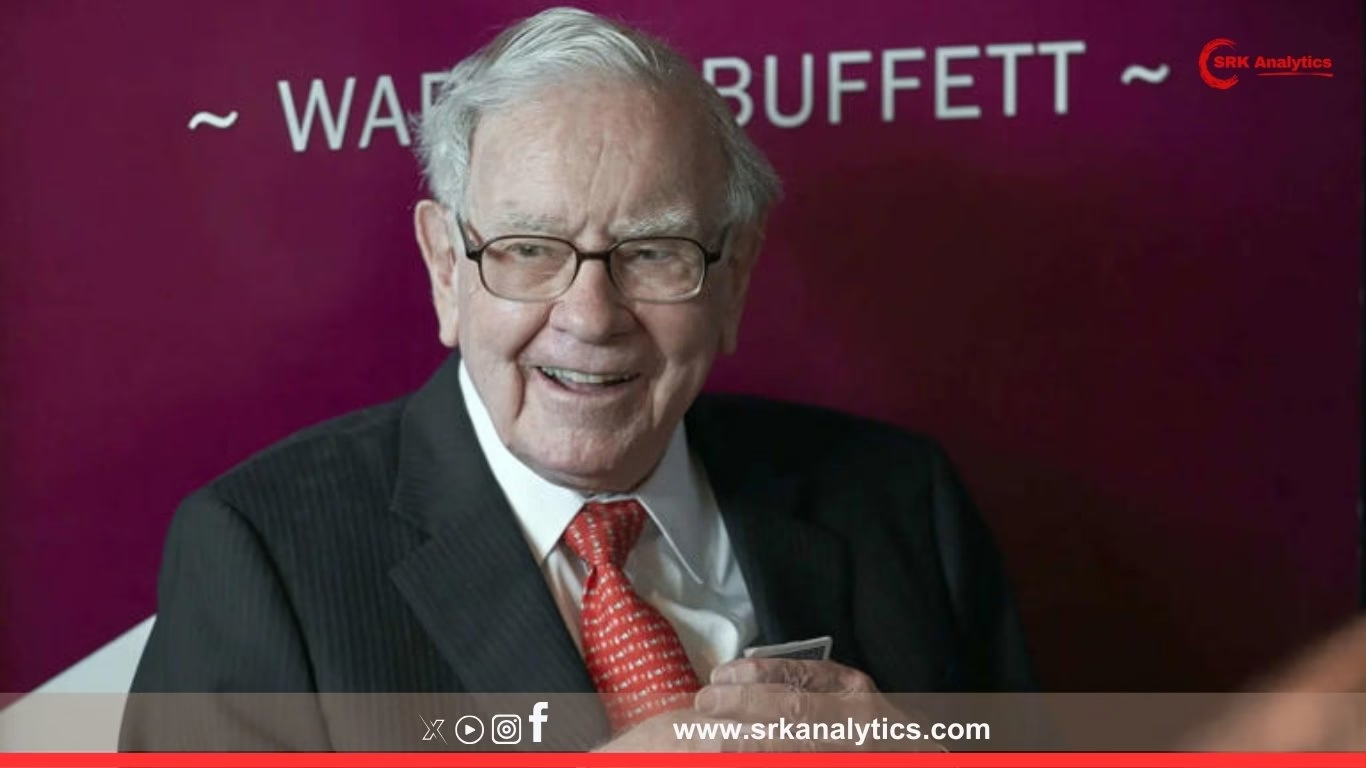Warren Buffett, the Oracle of Omaha, is known for his traditional investing philosophy that favours stable, cash-generating businesses with moats. However, a deeper dive into Berkshire Hathaway’s portfolio reveals a lesser-discussed strategic positioning towards one of the world’s most transformative technologies: quantum computing. By holding significant stakes in tech giants Alphabet and Microsoft, Buffett is indirectly exposed to the quantum revolution that could reshape global computing, security, drug discovery, and financial modelling.
Berkshire Hathaway’s Tech Holdings: A Silent Quantum Bet
Buffett historically avoided technology stocks, citing his lack of understanding of their business models. This stance changed with investments in Apple, Amazon, and more subtly, in Alphabet (Google’s parent) and Microsoft. While Berkshire’s Microsoft investment is through indirect holdings via other funds, its Alphabet stake is a direct endorsement of Google’s AI and quantum leadership.
Current Key Tech Holdings by Berkshire Hathaway
| Company | Approximate Stake Value (2025) | Strategic Relevance |
|---|---|---|
| Apple | $155 billion | Core portfolio anchor, ecosystem moat |
| Amazon | $1.8 billion | E-commerce and cloud |
| Alphabet | $2.1 billion | AI, quantum computing, advertising |
| Microsoft | Indirect exposure via funds | AI cloud, quantum leadership |
These positions are not just tech plays but strategic exposure to future computing paradigms.
Why Quantum Computing Matters
Quantum computing leverages the principles of quantum mechanics – superposition, entanglement, and interference – to solve problems that classical computers cannot handle efficiently. Its potential applications include:
- Cryptography: Breaking current encryption systems, leading to post-quantum security models.
- Drug Discovery: Simulating molecular interactions at unprecedented scales for pharmaceuticals and materials.
- Finance: Optimising complex portfolio risk models and real-time trading algorithms.
- Logistics & AI: Solving combinatorial optimisation problems exponentially faster.
While commercialisation remains years away, Alphabet’s Google and Microsoft are leaders in the race to build scalable, fault-tolerant quantum systems.
Alphabet’s Quantum Ambitions
Alphabet’s quantum journey is led by its subsidiary, Google Quantum AI, which achieved the milestone of quantum supremacy in 2019 when Sycamore, its 53-qubit processor, performed a computation in 200 seconds that would take the world’s fastest supercomputer 10,000 years.
Recent Developments:
- 2023-2024: Demonstrated improvements in quantum error correction, reducing logical qubit error rates significantly.
- 2025 Vision: Developing scalable error-corrected quantum processors to solve practical chemistry and AI problems within a decade.
CEO Sundar Pichai has positioned quantum computing as central to Alphabet’s moonshot technologies, alongside AI advancements like Gemini. For Berkshire, Alphabet is more than an advertising giant; it is a gateway to future technological disruptions.
Microsoft’s Quantum Edge
Microsoft’s Azure Quantum programme is integrating quantum computing into its cloud services, making it accessible to enterprises worldwide. Unlike Google, which is building quantum hardware, Microsoft focuses on:
- Topological Qubits: A more stable qubit design for scalable quantum computers.
- Quantum Development Kit (QDK): Programming languages and tools for quantum algorithms.
- Hybrid Solutions: Combining classical HPC with quantum simulations to offer immediate enterprise value.
Strategic Partnerships:
- Collaborations with Honeywell, IonQ, and Quantinuum to integrate diverse quantum hardware options into Azure Quantum.
- Investments in fault-tolerant quantum algorithms for optimisation, cryptography, and materials science.
While Berkshire’s Microsoft exposure is indirect, it forms part of Buffett’s expanding portfolio of AI and advanced computing investments that future-proof his conglomerate.
Quantum Computing Market Outlook
| Parameter | Forecast (2030) |
|---|---|
| Global Market Size | Over $125 billion |
| Key Drivers | AI integration, cryptography overhaul, pharma R&D |
| Leading Companies | Google (Alphabet), Microsoft, IBM, Amazon (Braket), Rigetti |
Analysts believe that first-mover companies will secure multi-billion-dollar enterprise contracts for quantum services in defence, banking, and pharmaceuticals.
Why Buffett’s Quantum Play Is Unique
Unlike venture capital funds betting on quantum startups such as D-Wave or PsiQuantum, Buffett’s exposure is de-risked:
- Strong Cash Flows: Alphabet and Microsoft generate substantial revenue from existing businesses, insulating quantum R&D investments from market volatility.
- Infrastructure Advantage: Both companies are integrating quantum into their AI and cloud ecosystems, creating scalable monetisation paths.
- Long-Term Moat Expansion: Successful quantum commercialisation will embed these companies deeper into global enterprise operations, reinforcing Buffett’s principle of economic moats.
What This Means for Berkshire Shareholders
Buffett rarely speaks about quantum computing in public forums. However, his portfolio shows that he values companies investing in technologies that align with Berkshire’s century-long investment horizon. Quantum computing could add exponential value to Alphabet and Microsoft, indirectly benefiting Berkshire Hathaway’s NAV (Net Asset Value) over the coming decades.
Risks to Watch
- Technological Maturity: Quantum hardware still faces significant scalability and error correction challenges.
- Competition: IBM, Amazon, and Chinese tech giants are also developing competitive quantum platforms.
- Commercialisation Timeline: Profitable quantum services may take another 5-10 years to emerge.
Investor Takeaway
For retail and institutional investors, understanding the hidden quantum exposure within blue-chip portfolios is critical. Berkshire Hathaway’s bets on Alphabet and Microsoft are not just plays on today’s advertising or cloud revenues but also a silent endorsement of quantum computing as the next great frontier.
Disclaimer
This article is for informational purposes only and does not constitute investment advice. Investments in equities and emerging technologies involve market risks. Readers are advised to consult certified financial advisors before making any investment decisions. The publication bears no responsibility for investment decisions taken based on this report.











